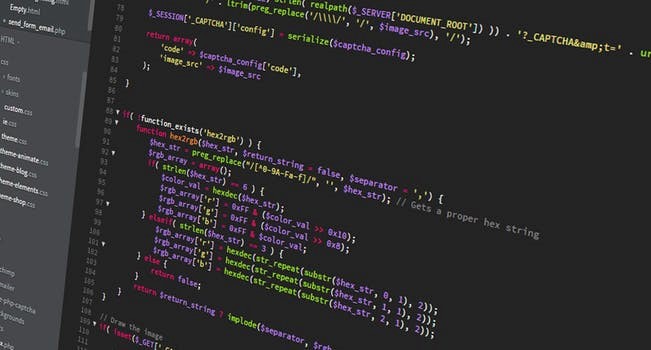In this age of Bring Your Own Device (BYOD), the mobile app development company you use must be more cautious with regard to enhancing the security of the apps they develop. You might already have nightmares about any of your ill-intentioned employees downloading sensitive data from a particular enterprise app that may not have the requisite security features built by your app development company.
Security is a greater challenge when it comes to enterprise apps than with normal consumer apps. And, the two market-leading operating systems, Android and iOS, keep coming up with features that make them more secure against the primary concerns of data theft and unauthorized access. So, which of these two operating systems is more secure from an enterprise perspective?
In this article, we compare Android with iOS in terms of enterprise-level security.
Vulnerabilities
Both Android and iOS have exhibited common vulnerabilities due to malware attacks and the installation of apps developed by any third-party app development companies.
In terms of specific security issues, Android was previously affected by Stagefright 2.0 that opened up the vulnerability in its multimedia engine and led to remote privileged code execution, without requiring any user interaction. The worrying factor is that such a vulnerability existed for over one billion Android devices (and more so for Android 5.0 and later) in 2015, regardless of the security measures adopted by any Android app development company.
A particular vulnerability for iOS that was in the news in 2015 was the malware called XcodeGhost (a name given to a modified version of Apple’s Xcode development environment). It was a security loophole that allowed apps from any iOS app development company to execute standard library code directly.
While such vulnerabilities have been patched up with updated versions of Android and iOS, there is no guarantee that they will not resurface again. However, such security issues have definitely made Google and Apple beef up the security of their operating systems, including the integration of third-party offerings and enforced usage of leading security practices.
In addition, the open source feature of Android has often been spoken about as a major source of security vulnerabilities. But, the same open source nature does make it easy for developers from various Android app development companies to fix any vulnerabilities quickly. So, if you spot any security vulnerabilities within your enterprise apps for Android you can promptly get the fix updated in the market (i.e., on the app store).
When it comes to iOS, the closed source nature does make it less prone to security vulnerabilities. However, it also means that, whenever such vulnerabilities are uncovered, it takes a long time to get the fix implemented by developers from different iPhone app development companies. In simple words, the time-to-market (update release on app store) for any iOS security fixes is considerably more as compared to any Android ones.
Security Differences
Due to fragmentation, there will be several different versions of the Android operating system in operation at any point of time within your enterprise. Also, different Android mobile devices come with different built-in operating system versions, which may not necessarily be the latest Android version. Unlike iOS (that caters only to smartphones or tablets only from Apple), Android has to cater to a large variety of smart devices from Samsung, Google, Micromax, Xiaomi, Oppo, and many more – the challenge is much bigger!
Different devices and Android versions will have different capabilities which make it difficult for Mobile Device Management (MDM) to handle.
Also, if any security patches or updates have been designed for the most recent Android versions, they will be implemented for some of the Android devices in your enterprise that has the latest versions. However, there would also be devices that carry some old Android versions, which may only receive the updates after a long time or may not receive them at all in certain cases. So, there may be a case where many of your employees are using Android devices with pretty old operating system versions that are not compatible with the latest updates available in the Android market.
In the case of iOS, the closed-source approach comes in the way of any analysis or diagnosis to be done in the case of security breaches. The reason for this is that Apple does not like to give away operating system control or access to any outsiders and exercises control over the entire device ecosystem, including the firmware, hardware, and software. So, when the FBI wanted to unlock an iPhone 5C and claimed to do so without help from Apple, there was controversy as Apple wanted to know how they did it and strengthened their encryption standards even more.
Apple also has a stringent app vetting process that blocks most malicious apps before they get approved or launched on the iOS store. The same does not hold true for Android apps, as the Google Play Store does not have such a strict approval process. So, there is a lot of scope for normal security glitches being ignored in Android apps, as they get approved to be available for download by the world.
Verdict
iOS seems to be the option for enterprises because it is less prone to vulnerabilities at the moment and you will not need to worry about all your employees accessing the latest version with all the security patches. However, Android is making rapid progress and the shorter lifecycle of getting security fixes implemented does attract several enterprises to go for it.
As an enterprise, if you are planning several updates for your app after its launch, Android might be the right option, especially if you do not wish to wait a long time for every update to release in the app store. But, if your concern is security, then, iOS is a better alternative at this point in time. The choice is yours!
Which one do you think is ideal for your enterprise? Let us know your comments below.
Shishir is the founder of ChromeInfotech, a well-known name in the Indian mobile application development and designing industry. With years of experience in the domain, he has now acquainted himself with all the nitty-gritty of what goes into making an awesome app in the least possible time.





